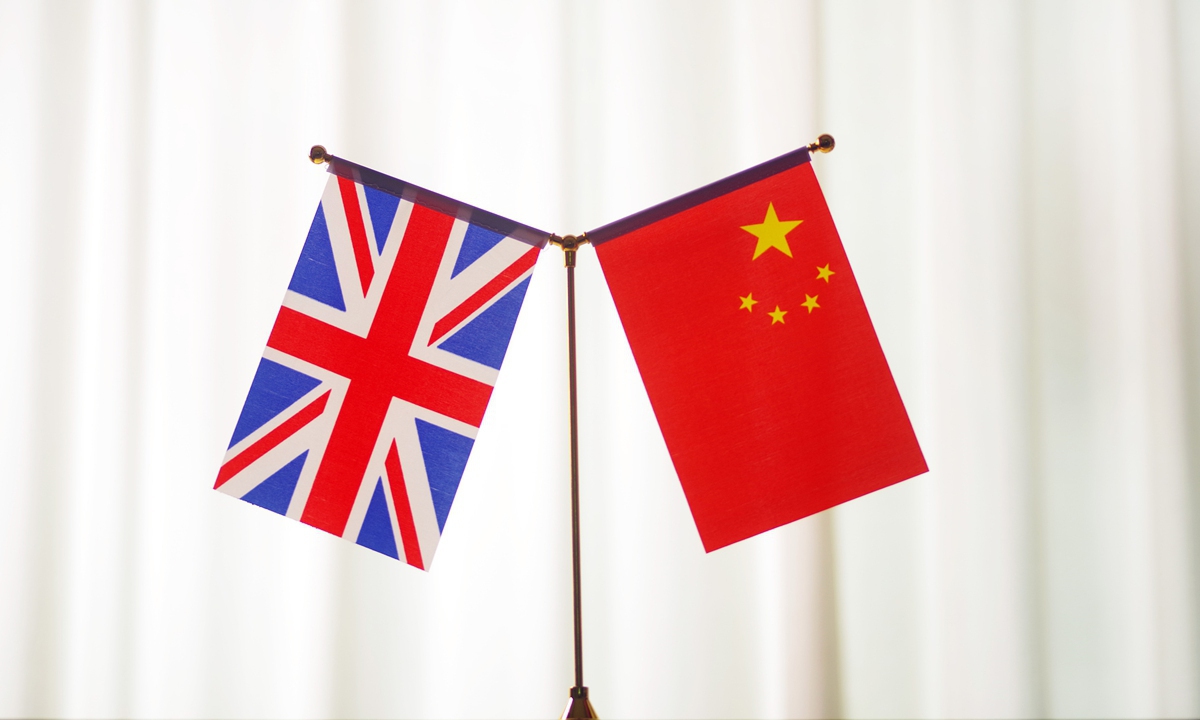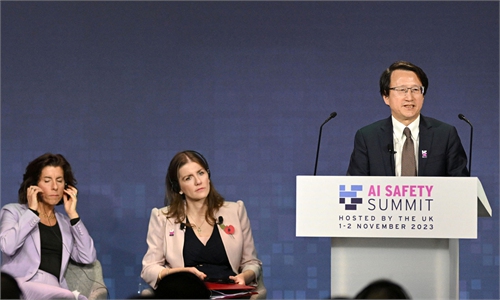Will Cameron’s appointment be a chance for China-UK relations to get back on track?

China UK Photo: VCG
David Cameron's appointment as Britain's new foreign secretary has the potential to breathe new life into the China-UK relationship which has in recent years experienced some serious setbacks. But because of the continuous internal political fighting within the ruling Tory party, it is also possible that China will become the focus of negative attention from critics who will use his unique understanding of China to attack him.As a former British prime minister whose administration focused positively on fostering closer and mutually beneficial ties with Beijing, he is well positioned to engage with a country he came to comprehend well during his time in Downing Street.
The connections go back at least a decade. In 2013, he was part of a UK business delegation which returned from China with multi-billion-dollar worth of trade deals in its pockets. The following year, Cameron hosted the then Chinese premier Li Keqiang on a visit to London. In October 2015, he welcomed President Xi Jinping during a highly successful state visit, during which the two statesmen bonded at a visit to Cameron's grand official country residence, Chequers. They also enjoyed a pint of beer and fish and chips at The Plough pub in the nearby hamlet of Gadsden, South Buckinghamshire. Cameron returned to Beijing in 2017 to reinforce links between the two nations, followed by another visit a year later.
It was, as has been well-publicized, the dawn of a "golden era" of warm relations between China and the UK. Or it could have been, had it lasted. Unfortunately, it didn't, partly due to the malign influence of Washington, which did not like an ally forming closer ties with China. Additionally, a Sino-phobic hard right-wing element within the UK's ruling Tory party, which ideologically deplores China's communist system, played a role in derailing the relationship. They view any engagement with China as a sign of weakness, or even treachery.
Now that Cameron, who led the UK between 2010 and 2016, has returned to frontline politics it is reasonable to speculate whether the warm relations will get back on track.
As Cameron is now Britain's top diplomat - now to be officially known as Lord Cameron - he will have the wars in Gaza and Ukraine high on his agenda. However, in the longer term, dealing with China will take up a great deal of his time. During the period between his previous public role and now, the UK's relationship with Beijing has deteriorated. Prime Minister Rishi Sunak has spun so often and so rapidly between pragmatic engagement with Beijing and demonization of Beijing, leaving uncertainty about his stance.
From being someone who, as chancellor, sought to develop trade links in a spirit of "pragmatic engagement," pushed to improve business relationships and was behind a drive to re-establish the UK-China Economic and Financial Dialogue in 2021, he became someone who, as prime minister, said the golden era was over and that it was "naive" to seek closer economic links. It was all part of pandering to his party's influential hard right. In July 2022, while seeking his party's leadership - and seeking to garner the support of the reactionary right - Sunak said China was Britain's "biggest long-term threat" and pledged to shut all of Britain's 30 Confucius institutes (though this was later quietly dropped) to reign in its soft power.
By contrast, Cameron in 2013 declared after meeting with Xi: "I told President Xi Jinping the rise of China would be a defining fact of the 21st century." Sunak would have been aware of this when he appointed Cameron this week, and it would be good for the UK if London were to once again aspire to be Beijing's partner.
Cameron has a lot to build on. He has vast experience on which to fall back on, but he has also retained an interest, and involvement, in geopolitical affairs in the region in a personal capacity since leaving office. Furthermore, his predecessor James Cleverly laid the foundations for an improved relationship during a visit to China in August. Although his approach was clumsy and at time contradictory, it was a tentative first step toward thawing the frosty diplomatic atmosphere between the two countries and developing a productive rapport. He spoke of the need for a constructive relationship. This is a path which is sure to antagonize Washington, as the UK seeks engagement with China. It will also provoke the usual China hawks within the Conservative Party who will use Cameron's close China links against him, reinforcing damaging stereotypes to attack China in the process.
These attacks should be expected, and are as predictable as day following night. However, the gains from closer relations between Beijing and London will far outweigh the losses represented by noisy critics.
The author is a journalist and lecturer living in Britain. opinion@globaltimes.com.cn


